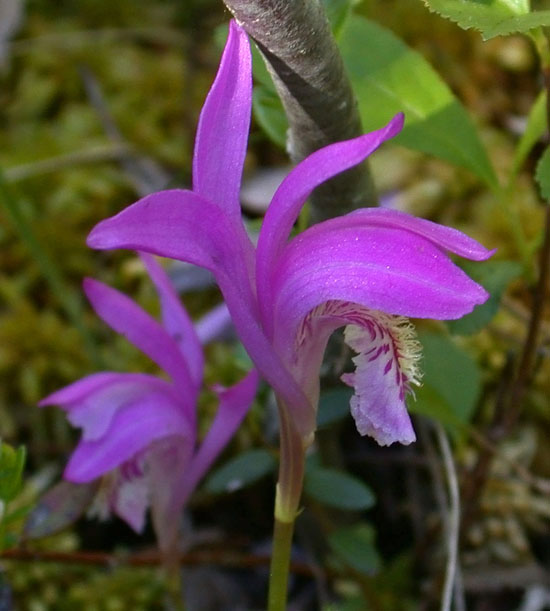Yesterday I visited a beautiful alvar ecosystem in upstate NY. Alvars occur on mostly flat expanses of limestone bedrock with very little soil accumulation (a type of pavement barren). Alvar plant communities are typically dominated by grasses and sedges, with scattered forbs, shrubs and trees. Many of the plants are rare and a few are found nowhere else in the state.
Balsam ragwort (Packera paupercula) was one of the dominant forbs at the site and was putting on a spectacular floral display.
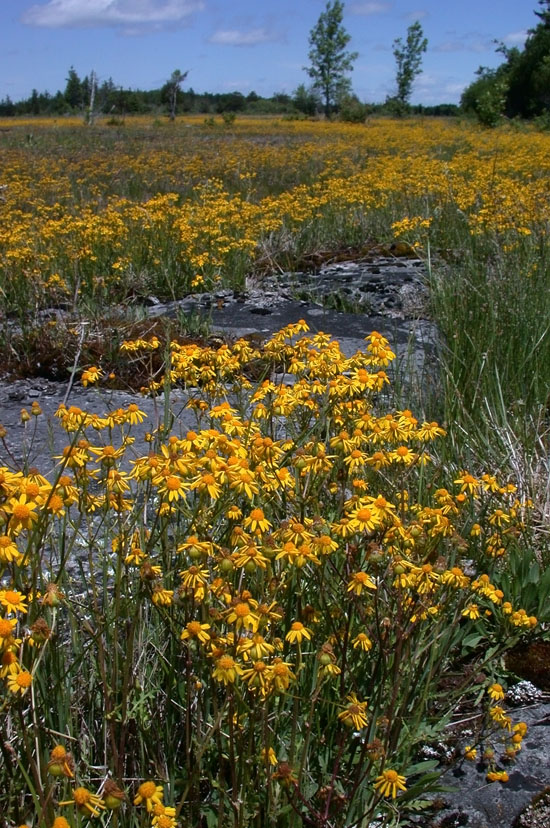
Downy arrowwood (Viburnum rafinesquinum) is a shrub found in open areas on limestone, usually along the edge of grassland. It can also occur in woodlands but will not usually bloom in the shade. A related species, V. dentatum, is a common shrub of wetlands that is tolerant of a wider range of pH values.
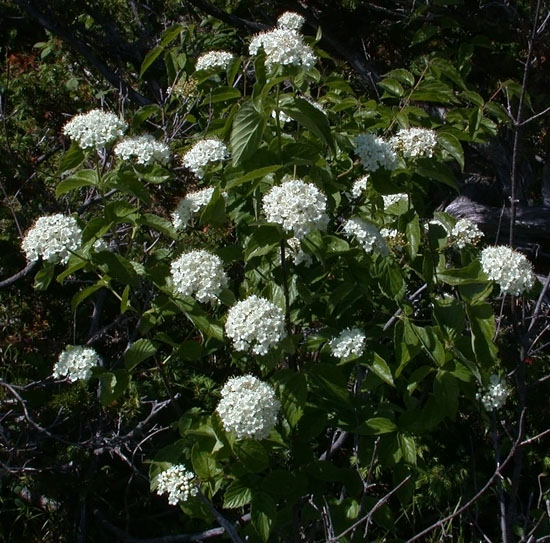
Harebell (Campanula rotundifolia) occurs on very thin soils over limestone. This species can also occur in more acidic environments like pine barrens and sand dunes. This plant, like many other alvar species, likely thrives here because of its ability to tolerate extreme environmental conditions that limit the establishment of more aggressive plant species.
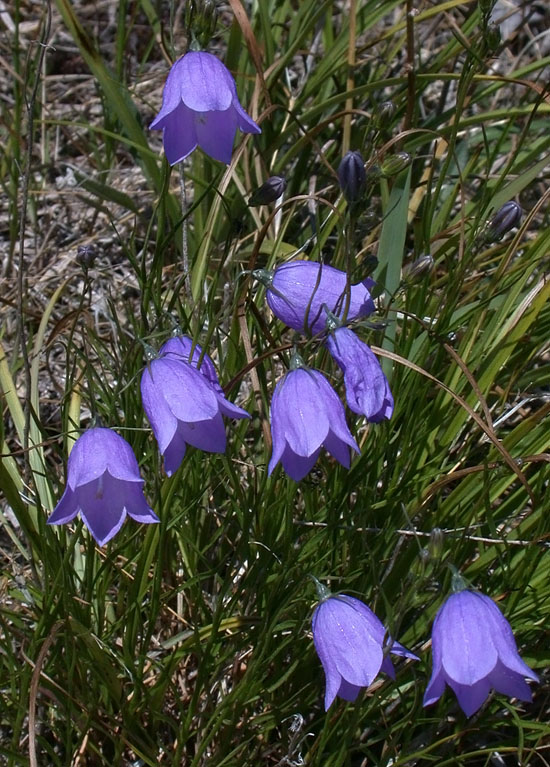
Many native roses thrive in dry environments. The most common species in the alvar community is smooth rose (Rosa blanda).
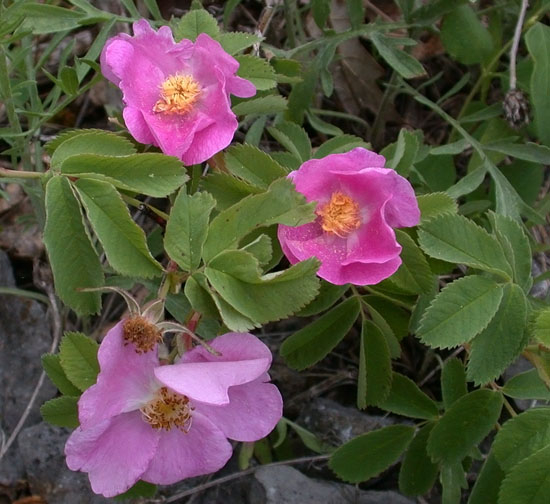
There is even a rare species of poison ivy found in alvars. Western poison (Toxicodendron rydbergii) is a small shrub, unlike the climbing plant (Toxicodendron radicans) more commonly found in NY. As the common name suggests it is more frequent in the Western U.S. where annual precipitation is lower. In the East it is most often found growing on sandy or gravelly soils.
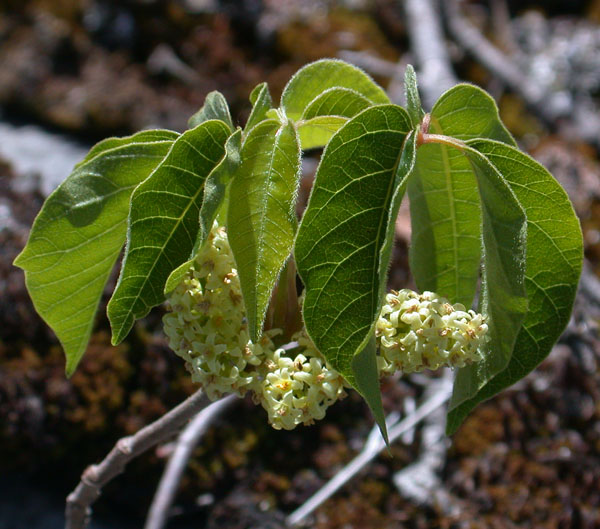
Wood lily (Lilium philadelphicum) is widely distributed in NY but rarely abundant where it is found. It is tolerant of drier conditions than our other native lilies. Some of the more unusual habitats for this species in NY are powerline right of ways where brush clearing maintains the high light exposure this species requires. This specimen was found growing up through a russet buffaloberry (Shepherdia canadensis) that would probably have overgrown the lily had it not been dwarfed by the harsh environmental conditions of the alvar.
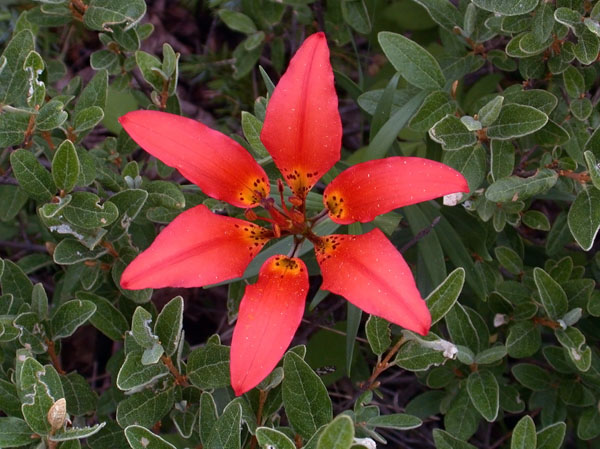
The real highlight of the trip was a huge population of scarlet paintbrush (Castilleja coccinea) that covered many acres of the site. This species is a hemiparasite that attaches itself to the roots of surrounding plants to acquire some of its water and nutrition. Scarlet paintbrush has experienced a severe decline and is extremely rare outside of the alvar ecosystem in NY, and even in alvars the populations are typically small, making the population at this site a significant remnant of New York’s natural heritage.
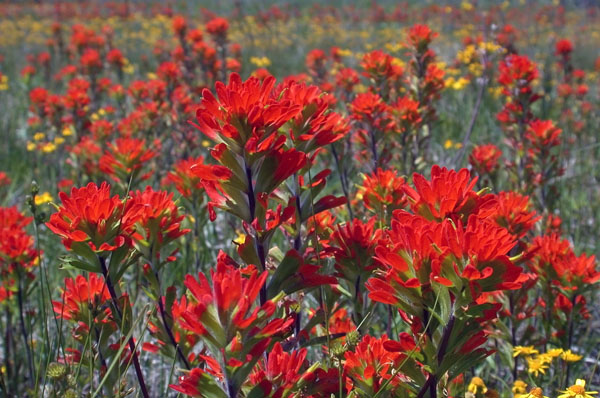
On the way back I made a short stop at a fen near Lake Ontario to see one of the most beautiful of our native orchids, dragon’s mouth (Arethusa bulbosa).
